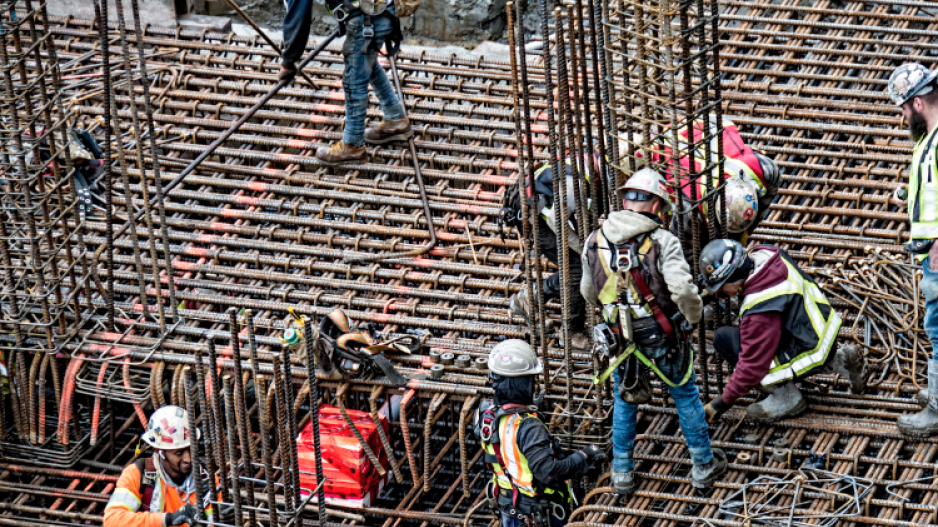The BC Construction Association welcomes B.C.'s investment in providing new training opportunities for future skilled workers but says more needs to be done to solve the labour shortage.
On Tuesday, the Ministry of Social Development and Poverty Reduction announced that more than $540,000 is being given to train people who want to work in the construction field.
BC Construction Training Network Association is delivering the construction-ready training program in partnership with ACE Trades and Technical Institute and Progressive Intercultural Community Services Society.
Minister Sheila Malcolmson says there is an increased need for more skilled workers.
“We're funding more training to give more people on-the-job experience to join this growing workforce,” said Malcolmson.
The training program is 16 weeks and has already started. The second group of people started their training on April 4; they'll be followed by another group on July 4.
President of the BC Construction Association Chris Atchison says the program is a start but there is a massive deficit of people in the field.
“We're looking at a deficit of thousands of individuals. These programs are important, but they're training dozens at a time,” says Atchison, noting the association welcomes "any investment, any partnership, any initiative that is going to help to bring new, skilled talent to the construction industry.”
The pandemic drained skilled workers
The COVID-19 pandemic made many people in British Columbia rethink their career paths and pursue new avenues, including the construction industry.
With an aging demographic, Atchison says the pandemic exacerbated the shortage.
“We've got lots of people retiring from our sector as other sectors do as well. And we've got people reevaluating their priorities,” he says.
He’s hearing directly from construction companies about the difficulties of finding people.
“If it's hard to find people, then it's hard to build on that next job or bid on that next job with certainty,” he says. “The number one issue that we're hearing is, we need more people."
Atchison believes the industry offers a healthy work-life balance and the ability to earn good money.
“The jobs that are available in construction, pay way above living wage and well above minimum wage,” he tells Glacier Media.
He adds people working to complete their journeyperson ticket will get paid over the four years.
“There is money involved in this industry for people who want to work hard and uncover a vast array of pathways that they could take and be employable for a lifetime.”
Owning a home in B.C. has never been more unaffordable
Atchison acknowledges the cost of living and lack of places to rent is a difficulty in B.C.
"We all know housing is expensive, inflation has impacted the entire nation, if not the entire world,” he says.
In 2021, B.C. had the highest rate of unaffordable homes, according to Statistics Canada. That was largely because of the higher rates of unaffordable housing in Vancouver.
According to RBC data, the Vancouver area is off the charts with unaffordability. Meanwhile, soaring interest rates have put many would-be buyers on edge in Victoria.
"Owning a home has never been so unaffordable anywhere in Canada,” states the report.
Canada Mortgage and Housing Corporation's January market rental report states that demand for rentals is outpacing growth in Canada’s three largest rental markets, which includes Vancouver.
“The shortages that we have right now are likely to grow quite substantially in the coming years. Unless we're ready to ramp up the pace of construction,” says Robert Hogue, assistant chief economist at RBC.
Atchison says this week's investment is welcomed, but he believes it’s going to take more to solve the worker shortage.
“This isn't going to be a tipping point to solve the workforce shortage challenges in our industry. But it is welcome because it is going to introduce new people to the industry,” he says.
To solve it, he says the province needs to focus on bigger programming.
“We're going to need to look at immigration, we're going to need to look at what our federal government policies are in welcoming newcomers who have the skills that we need to build our nation,” he says.
Atchison hopes people will consider a career in construction.
“Construction is open for any person in British Columbia who wants to find a fulfilling and rewarding career," he says.
Anyone interested in finding out more about the construction training program can contact their local WorkBC centre.




